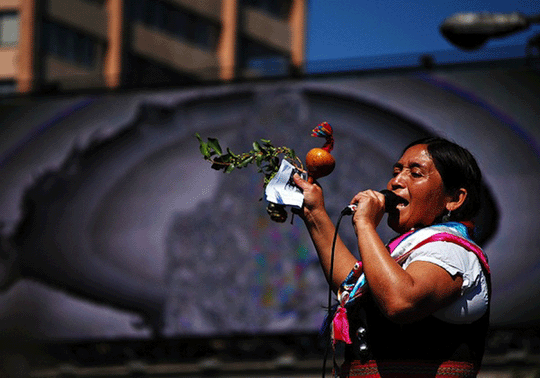



By Celia Scruby
Published On: Mon, Feb 3rd, 2014

Activists call into question government’s measurments of disputed indigenous land. Photo via todosnuestrosmuertos / Flickr
Chile has confronted concerns from a U.N. working group on human rights regarding its treatment of indigenous people by pledging to return “100 percent” of disputed land to Mapuche communities, according to La Tercera.
Justice Minister Juan Ignacio Piña said that the government aims to resolve the ongoing problems of land patriation — a core issue for indigenous Mapuche activists — within the next two years.
However several indigenous experts contacted by The Santiago Times raised concerns about the wording of the proposed solution.
Since the Chilean state invaded the area south of Bío Bío River in the late 19th century — overriding the long-standing treaty with imperial Spain — successive governments have alternately seized land from and, to a lesser extent, returned property to Mapuche communities. The result is a patchwork of land ownership in the region with indigenous communities living alongside large estate owners who benefitted from forfeitures decades previously.
Hernando Silva, indigenous law expert, said that the disputed land referred to by the Chilean government was that which is registered with the National Indigenous Development Service (Conadi), set up in 1993 to deal with the land exchange. That land reflects only a fraction of the ancestral land claimed by many indigenous communities.
Silva also said that only the Mapuche people were referenced, while nothing was said of Chile’s other indigenous groups.
“The Atacameños also have land claims, as do the Rapa Nui,” he said.
Pedro Mariman, director of the human rights activist group Liwen Mapuche Research and Documentation Center (CEDM Liwen) said the proposed land — cited by Piña as more than 120,000 acres — was a far cry from the total contested by much of the community.
“The demand for land greatly surpasses what is registered by Conadi,” said Mariman, adding that any return of territory must also be accompanied by greater political autonomy for the indigenous community.
Source: The Santiago Times